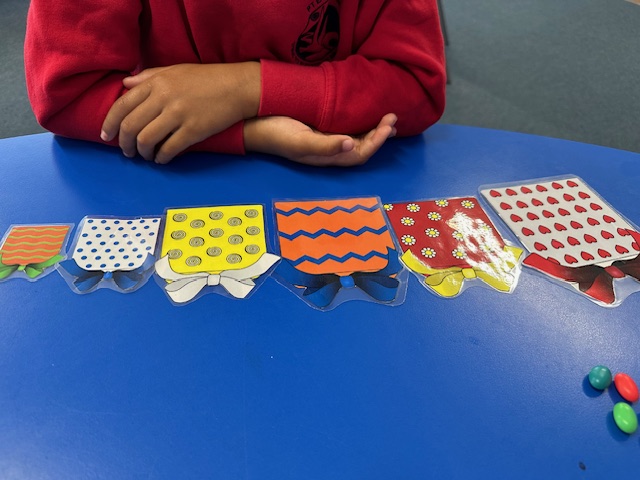"Number sense" can broadly be described as an ability to understand and make connections with numbers. Developing a sense of number encourages a child to think fluently and flexibly about numbers - they can see connections between numbers, find different ways of seeing a number, quickly solve simple sums in their head and solve problems that relate to their own lives.
Children gradually develop a sense of number in their pre school years but some find it difficult to make sense of number. They find it hard to find a connection between a mathematical symbol that represents a set of objects. It is language that helps children makes sense of mathematical concepts and gives them a clearer picture of how mathematical concepts are used. As their language increases so will their development of mathematical ideas.
To assess where some of my student were having difficulty I made a quick assessment that did not require counting skills to answer. Piaget found that young children could confidently identify a group of one, two or three objects even before they had any understanding of counting so I was hoping that this would also be found in my students. I asked children to recognise dot patterns (subitizing), recognise which group of dots was bigger, different or the same, put objects in size order and seeing what was missing from a group of objects. When doing the tasks I asked them how they knew the answer or how they had figured it out to be able to assess the language they were using.
There were interesting observations. Many found explaining their answer difficult if they were unable to count efficiently but would just say "bigger". I assessed their answers on a scale of one, two or three and have now got plenty of things to work on such as gifting vocabulary when we work as a group and incorporating explicit teaching into my practice. Explicit teaching helps children understand instructions as well as helps them comprehend what it is that they are learning.


